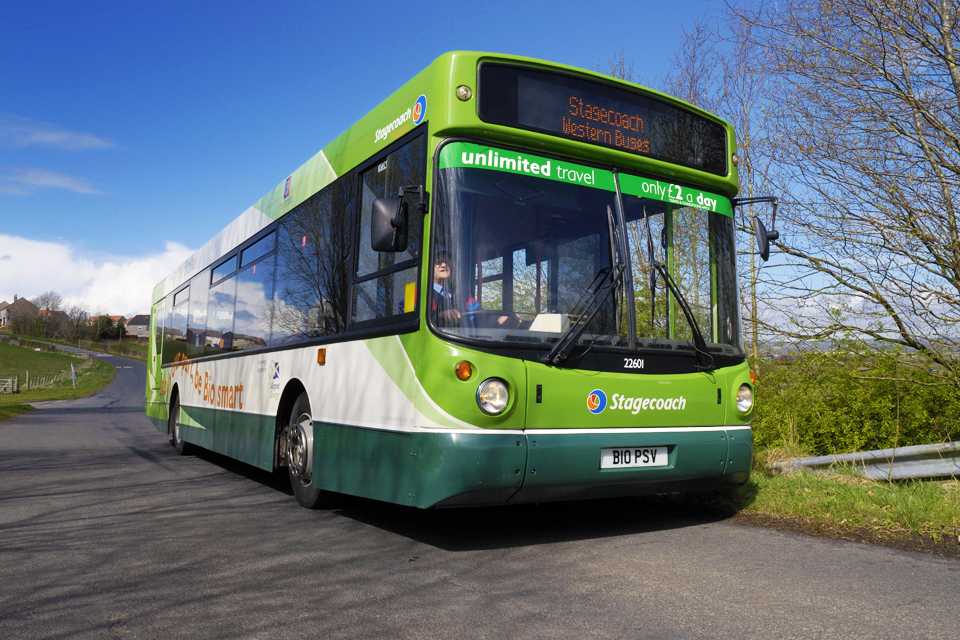
Transport Secretary Grant Shapps: 20 March, 2021
When the UK team rode into the Olympic stadium in Beijing to take on the torch in 2008, their steed was a bright red double-decker bus. This everyday vehicle, both beautiful and practical, is an icon of modern Britain.
Buses are the workhorses of our public transport network, responsible for double the number of journeys made on our railways. From schoolchildren to pensioners, they are a lifeline, cutting through the congestion in our cities, and even providing our Prime Minister with a model-making hobby.
Yet, despite their huge importance to our daily lives, buses are often overlooked in terms of resources and innovation.
Pub quiz experts will recall that the 1865 Locomotives Act famously required a man carrying a red flag to walk in front of every steam bus, limiting their extraordinary potential to a mere two miles per hour.
I’d argue the absence of a comprehensive national strategy has similarly thwarted the expansion and modernisation of our bus network, limiting us to a red-flagged, glacial-pace of change.
All that changes with our new national bus strategy, a commitment of £3 billion to make buses more reliable, frequent and cheaper.
This is fantastic news for the north, because we want to apply standards taken for granted in London – easy ticketing, frequent and speedy services – to the rest of the country.
The whole country deserves the ‘turn up and go’ services that have become standard in the capital. With hundreds of miles of new bus lanes and more services in evenings and weekends, red lights and red flags are being swept away in favour of faster journeys.
Better connecting rural communities
Crucially, in more rural areas across the North, £20 million of investment will help deliver on-demand services that give communities a treasured bus service.
Targeted funds mean places like Helsby and Frodsham will have better links to major employers like Stanlow Refinery and Thornton Science Park. Passengers across Cumbria, from Penrith to Ulverston, Wigton to Egremont-St Bees, will benefit from well over a million pounds to fund extra services every day.
Three new minibuses, booked via a mobile app, will speed across Cheshire East to strengthen its existing community transport services, and six new vehicles, also booked by an app, will double the previous services in North Lincolnshire.
This is a strategy that delivers for the North – with contactless payment as standard, daily price caps to keep the cost of travel down, and a requirement for next stop announcements on every bus in the country.
Greener fuels to cut congestion and clean up our air
Let’s not forget, a fully-loaded double decker can take 75 cars off the road. Backed by the purchase of at least 4,000 new zero emission buses – more than a tenth of the fleet – we’re focused on cutting congestion, pollution and harnessing the latest technology to help clean up our air.
And it’s a shot in the arm for our brilliant British bus manufacturers – supporting jobs in places like Sherburn-in-Elmet, just outside of Leeds, producing hydrogen fuel cell double deckers.
Add to that our plans to create the UK’s first-ever hydrogen transport hub in the Tees Valley, with the potential to create up to 5,000 new jobs. And then add the recent launch of our ‘Green Fuels, Green Skies’ competition, with £15 million to help companies turn everyday waste into cleaner fuels for planes.
We are forging a real opportunity for businesses across the Northern Powerhouse to be the next generation of pioneers, the catalyst making transport in this country greener and cleaner, and establishing this country as a global leader in hydrogen technology.
Local decision-making is vital
Perhaps most importantly, our Bus Strategy will see operators and local councils entering into Enhanced Partnerships, to ensure expertise and local knowledge are combined to deliver better for passengers.
Because we believe in putting decision making powers back into the places where they make a difference to the communities they serve.
That’s why this week I was delighted to unveil our plan for a new Northern hub in Leeds and a second headquarters in Birmingham, creating 650 jobs outside of London, and a more diverse and representative Civil Service.
When decision-makers truly know what it’s like to commute and travel around Northern towns and cities, we can be confident that decisions are absolutely rooted in what’s best for people living there.
And just as we prepare to overhaul our buses and make sure the ambitious transport schemes of the future are fit for the North, we haven’t forgotten the importance of protecting the routes and links that really matter to people today.
Today, I can announce almost £33 million of further funding for six light rail systems – including in Sheffield, Tyne and Wear, Manchester and Blackpool.
Protecting these services, which have been lifelines for getting critical workers to their jobs and the public to their vaccinations, is essential.
Better buses, pioneering fuels, local decisions and services protected. That’s how we ensure every form of transport can be an icon of modern Britain.

